 Petzlover
Petzlover Bicolor is originated from United States but Ussuri is originated from Russia. Both Bicolor and Ussuri are having almost same weight. Both Bicolor and Ussuri has almost same life span. Both Bicolor and Ussuri has same litter size. Bicolor requires Moderate Maintenance. But Ussuri requires Low Maintenance
Bicolor is originated from United States but Ussuri is originated from Russia. Both Bicolor and Ussuri are having almost same weight. Both Bicolor and Ussuri has almost same life span. Both Bicolor and Ussuri has same litter size. Bicolor requires Moderate Maintenance. But Ussuri requires Low Maintenance
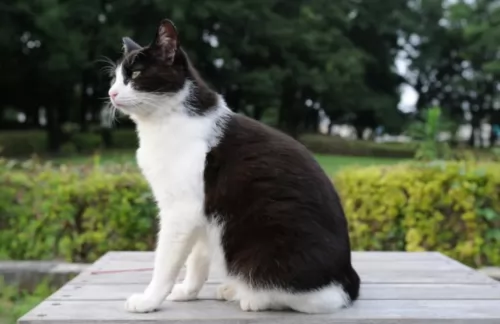 The first thing to know is that a Bicolor cat isn’t in fact a breed. Bicolor is just a term that describes a certain look that a cat has with its coat. It’s a cat with two colors such as red and white or black and white.
The first thing to know is that a Bicolor cat isn’t in fact a breed. Bicolor is just a term that describes a certain look that a cat has with its coat. It’s a cat with two colors such as red and white or black and white.
A popular name for bi-color cats is also Piebald or Tuxedo, and in fact many cat breeds can produce bicolor kittens, or black and white kittens such as Cornish Rex, Maine Coon, Manx, and others.
There are different coat color combinations when it comes to bicolor cats and the black and white markings may be more common but there are other color combinations too such as orange and white.
Nobody seems to know the origins of the Bicolor cats so we are going to assume they come from the USA.
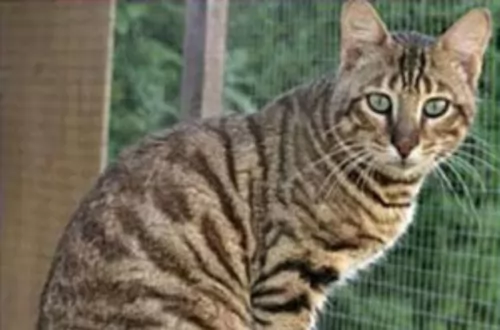 Not much is known about the Ussuri cat but it does seem to be a rare natural cat breed. The cat originates from Russia but is rare even in that country.
Not much is known about the Ussuri cat but it does seem to be a rare natural cat breed. The cat originates from Russia but is rare even in that country.
A breed standard for this cat was published in the 1990s, but nothing has been heard since and its breed status isn't clear. It does seem that the Ussuri's numbers are dwindling due to interbreeding with local domestic cats. Also, the cat doesn't have a breeding program and it is expected that the cat will just quietly disappear.
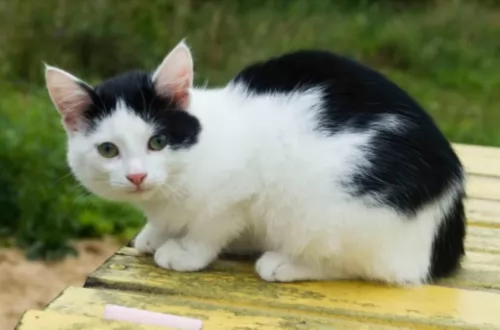 Regardless of the breed they belong to, information on these cats suggests that they can have many different looks. Look at the amazing Turkish Van cat for instance – each of these cats is recognizable for its long, luxurious fur. You’ll find a few touches of color on the cat's ears and tail, making in a Bicolor. They also have an interesting characteristic – being fond of water!
Regardless of the breed they belong to, information on these cats suggests that they can have many different looks. Look at the amazing Turkish Van cat for instance – each of these cats is recognizable for its long, luxurious fur. You’ll find a few touches of color on the cat's ears and tail, making in a Bicolor. They also have an interesting characteristic – being fond of water!
These Bicolor cats weigh in the region of 3 – 7kg, and can tend towards the smaller or larger size. Some of them can have short or long hair, larger or smaller ears and green or yellow eyes.
Coming from different cat breeds, the bicolor cat can have a mix of wonderful characteristics – they can be vocal or quiet or confident or shy.
They’re always wonderful though and can be curious, intelligent, playful, loving and loyal. They make great companions who just love the interaction they have with their human owners.
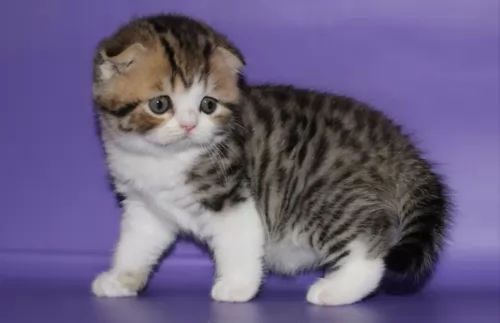 The Ussuri cat can be described as a medium-sized cat that weighs between 3 and 6kg.
The ears often have those tufts, similar to that of a lynx. The body of the Ussuri cat is muscular. The neck is firm, the legs medium length and muscular with rounded paws. The tail has a rounded tip. The coat is short and glossy and there is a thick undercoat.
It has a mix of spots with lines around the face.There are also line on the legs and the tail is ringed. It definitely lives up to looking like a wild cat.
The Ussuri cat can be described as a medium-sized cat that weighs between 3 and 6kg.
The ears often have those tufts, similar to that of a lynx. The body of the Ussuri cat is muscular. The neck is firm, the legs medium length and muscular with rounded paws. The tail has a rounded tip. The coat is short and glossy and there is a thick undercoat.
It has a mix of spots with lines around the face.There are also line on the legs and the tail is ringed. It definitely lives up to looking like a wild cat.
The Ussuri has a wild heritage, and domesticated, they are smart and intelligent. Of course, being on the wild side, they like to hunt and will present you with mice, rats, and birds. They are quite capable of forming strong bonds with their human owners, and tend to gravitate particularly to one member of the family.
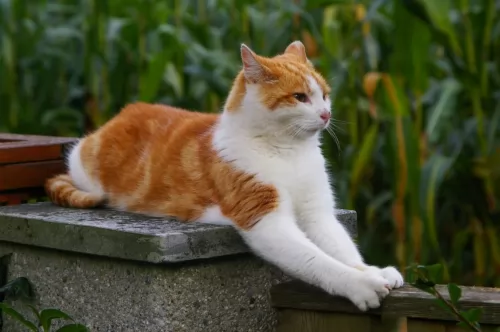 The Bicolor cat is such a steady, reliable cat-friend to have. When you start looking as these cats as your companion, you're going to get a smart, funny, adoring, playful family member who will be there for you whether you go to work each day or stay at home.
The Bicolor cat is such a steady, reliable cat-friend to have. When you start looking as these cats as your companion, you're going to get a smart, funny, adoring, playful family member who will be there for you whether you go to work each day or stay at home.
They’re such easygoing cats, with no airs and graces. They’re happy, relaxed, and uncomplicated cats and when you make a Bicolor your pet and friend, your life just becomes that much more meaningful.
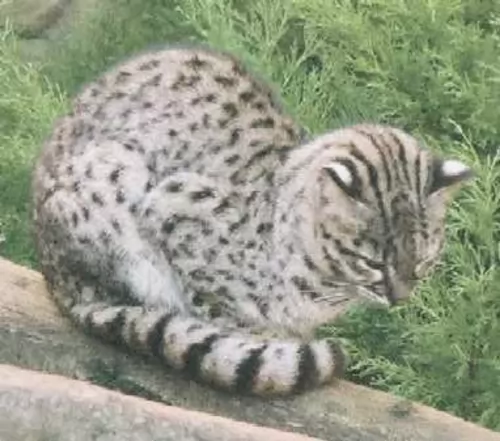 Ussuri Cats are very smart cats and they are able to adapt fairly quickly to their surroundings. Think twice before you invest in a Ussuri as they have different needs to your regular domestic cat.
These are cats that won't slot easily into indoor life and that is why you need to think carefully before you bring such a cat home as a pet.
While they can be affectionate to their human family, they are restless cats, wanting to get away to that wild life they once knew.
Ussuri Cats are very smart cats and they are able to adapt fairly quickly to their surroundings. Think twice before you invest in a Ussuri as they have different needs to your regular domestic cat.
These are cats that won't slot easily into indoor life and that is why you need to think carefully before you bring such a cat home as a pet.
While they can be affectionate to their human family, they are restless cats, wanting to get away to that wild life they once knew.
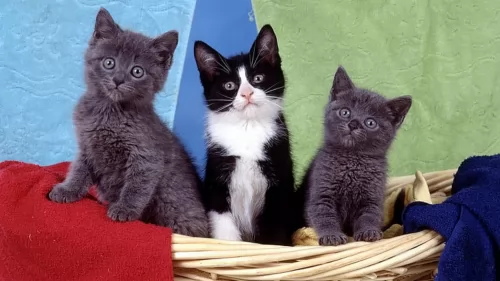 By providing your kitty cat with a loving home, you can ensure that he stays as healthy as possible. Unfortunately though, cats can get sick, regardless of how well you take care of them and then as a responsible pet owner, you will be able to take your pet to your local vet.
By providing your kitty cat with a loving home, you can ensure that he stays as healthy as possible. Unfortunately though, cats can get sick, regardless of how well you take care of them and then as a responsible pet owner, you will be able to take your pet to your local vet.
Some of the common cat problems you get can be kidney disease, ear infections, dental disease, parasites such as heartworm, cancer or something like feline immunodeficiency virus.
Whether your cat has a virus or an infection, remember that getting your cat to the vet can mean nipping the problem in the bud before it gets more serious.
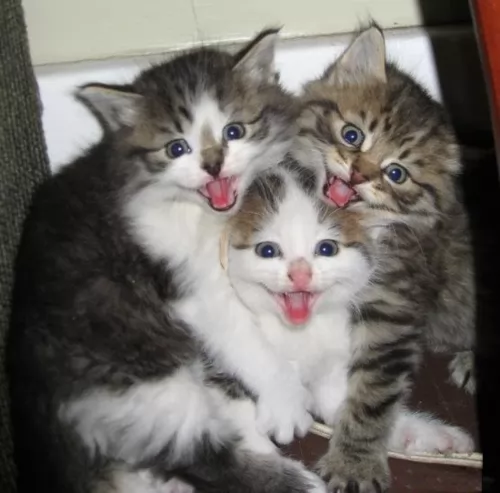 These are strong, robust cats, but even so, for your own peace of mind, a visit to the vet every now and them can be a good thing to make sure everything is aright with your cat.
Healthy they may be, but they can still pick up any one of the many common cat diseases there are.
With a good diet, plenty of exercise and a caring environment, they can reach 16 years of age or older.
These are strong, robust cats, but even so, for your own peace of mind, a visit to the vet every now and them can be a good thing to make sure everything is aright with your cat.
Healthy they may be, but they can still pick up any one of the many common cat diseases there are.
With a good diet, plenty of exercise and a caring environment, they can reach 16 years of age or older.
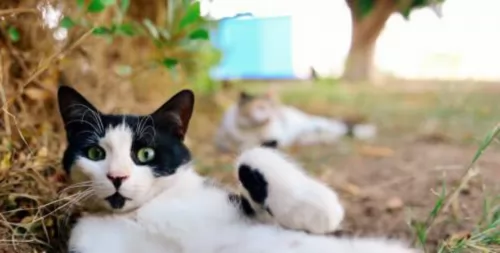 Caring for your Bicolor cat is much the same as with any other cat. Your Bicolor will shed, so brushing him will tickle him pink, especially if you do it lovingly and gently – it’s like a bonding session. The weekly brushing will get rid of loose hairs and dust and keep the coat healthy and shiny.
Caring for your Bicolor cat is much the same as with any other cat. Your Bicolor will shed, so brushing him will tickle him pink, especially if you do it lovingly and gently – it’s like a bonding session. The weekly brushing will get rid of loose hairs and dust and keep the coat healthy and shiny.
Spay or neuter your pet to avoid unwanted kittens. Stay up to date on veterinary visits and vaccinations.
Provide your cat with stimulating toys as well as all the equipment he needs to be comfortable – food and water bowls, litter box, grooming equipment, bedding, climbing- and scratching equipment.
All cat owners, whether their cats eat homemade food or wet- or dry food should read cat food labels and understand the nutrients content.
Certainly, as a carnivore, cats require certain vitamins, minerals, and proteins that only meat can provide.
Understand how to work out if the cat food is balanced or not and not packed with too many grains and carbohydrates.
How much your Bicolor eats will depend on his age and his activity levels. Be careful not to overfeed your cat as overfeeding is dangerous. When cats put on too much weight, it leads to problems such as diabetes, heart- and joint disease.
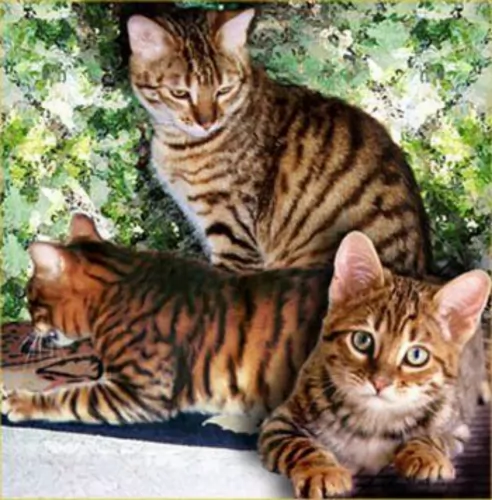 The short coat of Ussuri cats is glossy and close-lying, and a brush once a week will be fine for this cat.
Provide your pet with an outside enclosure. These are cats with a wild side, and to ensure you don't get frustrated with him, an enclosure with climbing equipment will be a good idea.
Ensure the cat gets plenty of exercise. You will need to invest in interactive toys that encourage this intelligent cat to think things out.
Only the very highest quality meat-diet will be good enough for this cat. Ensure he has a constant supply of fresh cool water.
In his outside enclosure, you can include a paddling pool, and in the wilds, cats like to paw at water and wade in.
Provide your pet with a comfortable sleeping area.
The short coat of Ussuri cats is glossy and close-lying, and a brush once a week will be fine for this cat.
Provide your pet with an outside enclosure. These are cats with a wild side, and to ensure you don't get frustrated with him, an enclosure with climbing equipment will be a good idea.
Ensure the cat gets plenty of exercise. You will need to invest in interactive toys that encourage this intelligent cat to think things out.
Only the very highest quality meat-diet will be good enough for this cat. Ensure he has a constant supply of fresh cool water.
In his outside enclosure, you can include a paddling pool, and in the wilds, cats like to paw at water and wade in.
Provide your pet with a comfortable sleeping area.